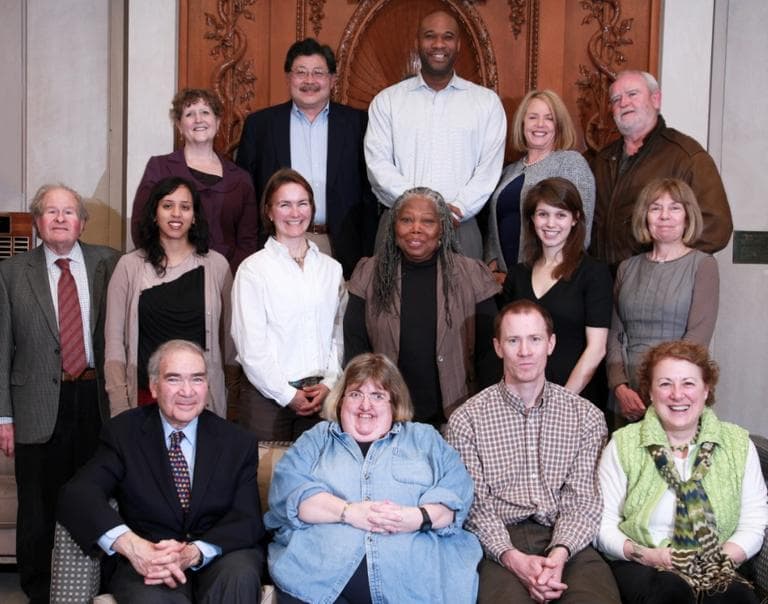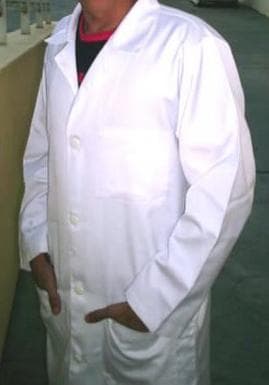Advertisement
'Ethically, Is This Right For Doctors To Do?' Help A Terminal Patient Die?

Ravi Parikh, a fourth-year student at Harvard Medical School, faced conflicting messages.
The American Medical Association, which he belongs to, and the Massachusetts Medical Society oppose Question 2, the measure on next month's state ballot that would allow terminally ill patients to ask a doctor to prescribe them life-ending drugs.

In contrast, The American Medical Student Association, which he also belongs to, supports it.
Ravi faced conflict within as well. He'd applied to medical school for the usual reason — to heal patients, as spelled out in the Hippocratic oath — not to help them die.
But his medical education introduced him to the complexities of modern American dying.
It stressed patient autonomy as a "central guidepost." Yet he saw patients losing control as they neared death. "No patient that I have spoken to wishes to die in pain, alone, or hooked to a ventilator," Ravi said, "and yet that is the way in which many patients pass away in the ICU."
Seeing similar confusion about the ballot measure among his peers, Ravi and fellow fourth-year Grant Smith helped organize a panel discussion for all local medical students earlier this month at Harvard.
It let the audience pepper panelists on each side of the issue with questions, and also use the teaching tool of a case study: A hypothetical elderly man with metastatic cancer who comes to his doctor asking for a lethal prescription.
That case discussion, Ravi said, brought out a valuable consensus among the opposing panelists: All agreed on the need for more and better end-of-life discussions with patients.
But on the "toughest question" — "Ethically, is this right for doctors to do?" — there was no clear answer, he said. Rather, each side argued that its position represented the true embodiment of "Do no harm."
[module align="right" width="half" type="pull-quote"]'This conversation involves an irresolvable dilemma.'[/module]
If Ravi and his fellow students remain conflicted, they can at least be comforted that they are in plenty of good company.
By all indications, the ballot measure presents an extraordinarily difficult problem of medical ethics — a problem wrestled with nationally as states consider physician-assisted suicide laws. Thus far, only Oregon and Washington have passed them; polls suggest that Massachusetts may be next.
The ethical issues involved are hard and deep enough to divide not just medical associations but medical staffs — a Massachusetts General Hospital panel presented arguments for and against Question 2 earlier this month — and seasoned ethicists.
Consider the Boston-based Community Ethics Committee, a group of 18 diverse volunteers who gather to craft opinions on some of the thorniest of bio-medical issues.
They've managed to reach consensus on whether children's organs can be donated after cardiac death but before full brain death; on social media use in medicine; and on whether medical staffers can sometimes refrain from resuscitating a patient even against family wishes. They've dealt with death before, on the issue of "continuous deep sedation" near the end. (Note to my family: Sounds good to me.)
But on Question 2, for the first time, they could not come to complete agreement, said the group's founder, Carol Powers.

Instead of issuing a pro or con opinion, they put out a carefully considered White Paper that conveyed their dialogue on issues both practical and philosophical. They are also encouraging people with questions to come to a free public forum on Question 2 on Oct. 25 at Harvard. (Details here.)
The group did agree that the language of Question 2 is loaded. "Death with Dignity or Physician Assisted Suicide - neither term is both precise and fair," the White Paper says. They decided to use “Choosing Medically Induced Death.” But otherwise, they ultimately concluded:
This Conversation involves an irresolvable dilemma. How does our society honor the choice of a terminally patient who wants to control the when, how and where of that most personal expression of a life – choosing a “good death” - while at the same time how does our society protect those among us who are most vulnerable from societal pressures to choose death and “so decrease the surplus population.”
"No amount of talking was going to make us come to one position or another," Carol said.
The committee, aimed at community input into medical ethics, does not include doctors, but its members have spoken at various fora on Question 2, she said, and responses from doctors have been fascinating and sometimes surprising.
From a group of palliative care physicians, she heard that though they have the most expertise relevant to Question 2, they don't want to take any sort of lead on it, because for the last 15 years they've been fighting the kinds of negative perceptions that prompt nurses who see them to ask, "So who's dying?"

On the other hand, she said, among doctors who specialize in patients with disabilities and might thus be expected to oppose the measure, some have been very much for it.
The comments of one doctor, "a saint" who works with medically fragile patients, particularly struck her: "Even though he could understand the arguments for it — that there's a sense of not only respecting a patient’s autonomy but that it can be construed as an act of compassion and care — he said to be honest, he could not imagine writing the prescription."
"He just could not take that step mentally."
The crux of the dilemma for doctors, Carol said, may be that if a patient can ask for a lethal prescription, "that changes the whole patient-physician relationship."
In effect, the doctor's role "has been reconceived," said Prof. Dan Brock, a proponent of Question 2 and, until recently, the longtime head of Harvard Medical School's ethics division. "It's not always to extend life no matter what," and that makes it more complicated.
He offered this context: Beginning in the 1960s, as life-sustaining treatments began to improve, they spurred a movement to give more end-of-life control to patients and their families, focusing largely on the ability to withdraw treatments that keep dying patients alive, such as respirators or kidney dialysis.
"I view the physician-assisted-suicide issue as, in a way, the culmination of this long process," he said, "because it covers patients for whom there is no life-sustaining treatment to be withdrawn."
"It's supported by the same ethical values or principles that underlay the whole trend," he said, "namely the importance of patient self-determination about what happens at the end," and the recognition that in some cases, treatment may no longer benefit the patient.
[module align="right" width="half" type="pull-quote"]Concerns about 'playing a much more active role in the patient's death.'[/module]
It has become an accepted part of medical practice that patients have a right to refuse life-sustaining treatment such as a respirator, Prof. Brock said. And yet on Question 2, some doctors express concerns about "playing a much more active role in the patient's death. They're providing the means for bringing about the patient's death" rather than just letting the disease kill them. They feel that "'We're no longer healers, we're now killers or enders of life.'"
"In fact," Prof. Brock said, without getting into a long ethical argument, "a physician is in a much more active role in bringing about the end of the patient's life when he or she removes a respirator on a clearly respirator-dependent patient. My own view is that when the physician does that, the physician kills the patient, though justifiably."

Question 2 raises myriad such issues and concerns about the potential effects of this change in the doctor's role. Oregon and Washington can provide helpful data on how the laws play out, but that still doesn't make it an easy call in Massachusetts.
There seems to be easy agreement on only one point: It's good that because of Question 2, people all over are discussing dying more than usual — and that includes doctors.
"No matter whether it passes or not," Carol Powers said, "people are going to be talking about this, and that is a very good thing."
--------------------------------------------------------------------------------------------------------------------------
Further reading:
The Community Ethics Committee's White Paper: Choosing Medically Induced Death
On Point: Death on Demand
This program aired on October 19, 2012. The audio for this program is not available.
